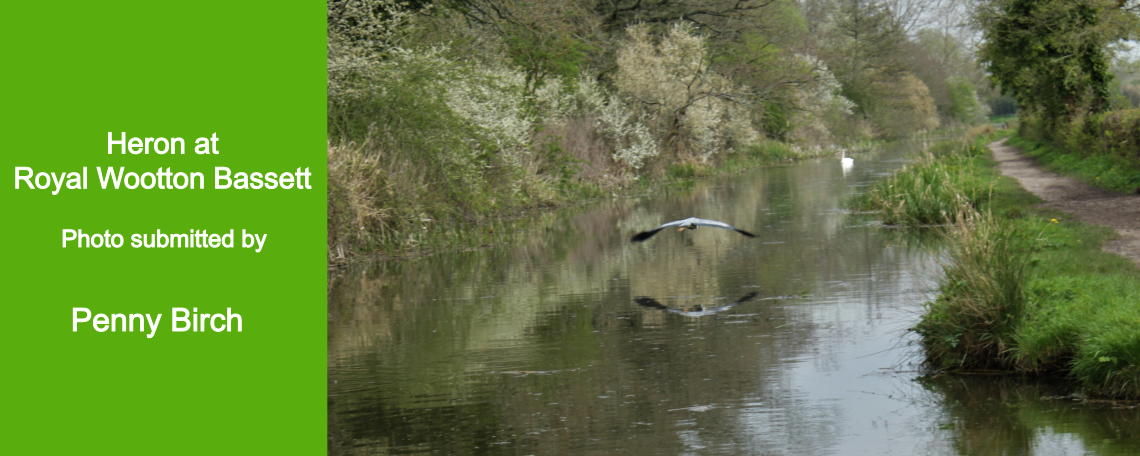1889: Canal Traffic to Bristol
AN IMPORTANT TRANSFER.
From the Swindon Advertiser, Saturday 28th December 1889, quoting the Bristol Mercury, 16th December.
We have the satisfaction this morning of announcing an important step towards the improvement of the means for conveying heavy traffic to and from the port of Bristol.
It is well known that for twenty years past the policy of the railway companies has been to obtain possession of the canals in their districts, or at any rate to acquire a controlling interest, so as to smother their competition. It has long been contended by Mr F. R. Conder, C.E., and others, that it is a mistake in their own interests, because it involves carrying by rail a quantity of heavy minerals and other traffic at rates which are not remunerative, while it interferes with the earning power of the railways in more profitable directions.
The policy of the continental railways is different, and it was held that the late Mr. Grierson's book on railway rates proved the fallacy of the railway policy. It was once deduced from his figures that the Great Western Company only received three-tenths of a penny per ton for every ton of coal they carry in order to pay for a carriage of sixty miles!
At the same time it has been felt that the practical closing of canals has been a great detriment to mercantile interests, because it removes the only formidable competitor of the railways, and the Railway and Canal Traffic Act of 1888 contains clauses for the emancipation of the canal interest.
In order to follow these up and see what can be done with them, a number of gentlemen interested in the traffic between Bristol and London have bought the Wilts and Berks canal with the intention of entering into active competition with the Great Western Railway.
This leaves the Kennet and Avon canal at Semington, a few miles this side of Devizes, and passes through Melksham, Lacock, Wootton Bassett, Swindon, Shrivenham and Challow to the Thames at Abingdon. The Kennet and Avon canal, which joins the Thames and Reading, has the advantage of giving a distance of 23 miles less between London and Avonmouth, but against that has to be set 28 additional locks, as it ascends to a much greater height.
1888 Railway and Canal Traffic Act
The Wilts and Berks Canal at one time enjoyed considerable traffic but the Great Western Railway Company, having control of the Kennet and Avon Canal over which all its Bristol traffic has to pass from Semington, has been able to checkmate it.
The Act of 1888 has, however, effectually prevented any extension of the power of the railway companies over canals, for section 42 forbids any railway company, director, officer of the railway company without express statutory authority, to allow any part of the company's funds to be applied for the acquisition of any interest in any canal undertaking. The terms of the section are most comprehensive and provide that if it is contravened the interest acquired shall be forfeited to the Crown, and the persons who are to blame shall be liable to repay the company the sum expended and the value of the forfeited interest and proceedings for the recovery of this exemplary penalty may be taken by any shareholder of the company.
But the action of the legislature has not ended there, for section 38 provides that "where a railway company, or the directors or officers of the railway company, or any of them or any person on their behalf have the control over, or the right to interfere in or concerning the traffic conveyed or the tolls, rates or charges levied on the traffic of or for the conveyance of merchandise on a canal or any part of a canal, and it is proved to the satisfaction of the Commissioners that the tolls, rates or charges levied on the traffic of or for the conveyance of merchandise are such that are calculated to divert the traffic from canal to railway, to the detriment of the canal or persons sending traffic over the canal - the Commissioners may, on application of any person interested in the traffic of the canal, make an order requiring the tolls, rates and charges levied to be altered or adjusted, in such a manner that the same shall be reasonable compared with the rates on the railway."
Thus, unless the company can show the Railway Commissioners that the rates on the canal from Bath to Semington are reasonable in comparison with those on the railway, they will be reduced.
But the Paddington Board (GWR) have also formulated bye-laws, which while they show a benevolent regard for the well-being of their servants, which might well be extended to the guards and signalmen on the line, have also acted very effectually in restraint of trade. They prevent all Sunday traffic, they do not allow boats to pass through any lock after 9pm or before 4am, so that a boatman, instead of being able to make a forced march so as to speak, and get through in a day, has to lay-by at 9pm, however near he may be to his destination, and suffer the delay and expense of being out all night.
But in section 40 of the Act, all existing bye-laws cease to have effect unless duly authorised by the Board of Trade within such a time as it shall prescribe, and no new bye-laws may be enacted without its sanction. Moreover, with regard to the existing or future bye-laws the Board of Trade may at any time give the canal company notice of disallowance and then the bye-laws will cease to be in force.
This power, it is considered by Mr James Cochrane, who is solicitor to the new proprietors of the Wilts and Berks Canal, will enable the restraints upon the navigation of the Kennet and Avon Canal to be got rid of. Furthermore, if the canal is not kept in proper condition, and it is contended that the Kennet and Avon needs clearing of mud, the Board of Trade can send down an inspector with all the powers of a Railway Inspector. We should add that the Wilts and Berks canal is connected by a short branch from Swindon, through Cricklade with the Thames and Seven Canal, into which new capital is about to be thrown with a view to developing it as a means of transit.
It will, we think be seen that with the new energy which is to be bestowed upon the management of the Wilts and Berks Canal and the resolute determination of the Legislature to foster canals, there is every prospect of much increased facilities for getting heavy goods from Bristol to London. In the end we believe even the railway companies will benefit, for they will be relieved of a class of traffic which is of no good to them, and which they will eventually see they have no business with.









